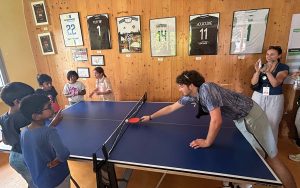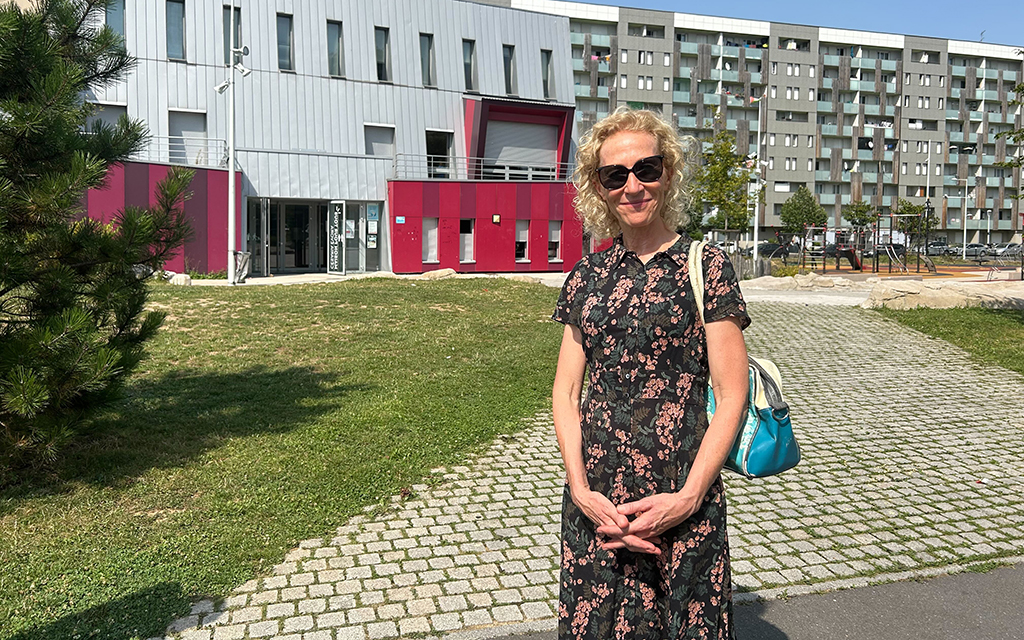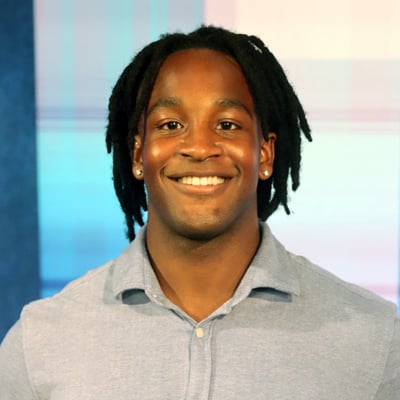PARIS – While the world was engrossed with the Paris Olympics, impoverished children at a local Paris nonprofit were some of the Games’ happiest winners. And the children’s center, which has been graced by former Olympian Roger Federer, is breaking down walls to provide services to neighboring communities.
Thanks to government funding, Fête le Mur has been given life.
The name is more than just a name. It’s the nonprofit’s lifeline.
The word “mur” in French translates to “wall.” The “wall” is what the nonprofit wants to help kids conquer, whether it be a euphemism for poverty, homelessness or lack of commodities or toys. The word “faite” is a word meaning “to do” or “get done.”
The nonprofit creates a pun in French, because the word used in the title is “fête,” not “faite.” The word “fête” means “to celebrate.”
So “fête le mur” means to both break down the wall and celebrate overcoming it. And thanks to money received from the Ile-de-France government, Fête le Mur is helping youth celebrate sports and culture while breaking down barriers.
Yannick Noah, the legendary French tennis champion, helped found Fête le Mur in 1996 and the nonprofit epicenter of sports and culture for underserved youth has spread across France and its overseas territories.
The organization has proliferated to 80 cities, but Aix-en-Provence is where it all started.
Inaugurated in 2000, the La Courneuve location holds a healthy amount of social housing and the signs of poverty are quite evident, which presented a more challenging yet fulfilling endeavor for Noah and Severine Thieffry, the organization’s co-founder and former director.
Mohamed Assaoui, the current director of Fête le Mur La Courneuve, has seen his location morph over time.
“No one wanted to come here. It was a no-zone,” Assaoui said. “Now they want to come here because they saw the transformation.”

Children play table tennis at the Féte le Mur building in the La Courneuve neighborhood. The Paris Games brought attention to government assistance for the program. (Photo by Zach Bradshaw/Special for Cronkite News)
Based on the ability of sports to generate change, the barrier to an expensive sport like tennis is broken down through an introduction to the sport and subsequent training by Fête le Murstaff in underserved communities like La Courneuve.
Thieffry believes the barrier to a sport can be psychologically challenging as much as it is financially. In other words, the financial barrier spurs the creation of a psychological one.
Getting underserved youth to participate in new activities helps show them that they have hope for the future. La Courneuve benefits from its close proximity to the Cesaria-Evora middle school.
Fête le Mur La Courneuve, held in the Maison Pour Tous Césaria Evora, is a sizable and colorful two-story establishment that has many different rooms and common areas for school help, playful activities, entertainment, instruction and lounging.
It’s a safe haven for local boys and girls that traces its origin to 1996, when Noah wanted to help impoverished neighborhoods and Thieffry wanted to help give kids a place for sport.
Fête le Mur’s overarching strategy across its sister locations is to also provide youth with the opportunity to advance professionally and socially through tennis lessons and programs like “Game, Set and Job.”
“Every year we have more than 15,000 kids who play tennis, who can travel and discover some friends in France,” Assaoui said.
The professional aspect of the program helps students write better cover letters and resumes while developing interviewing skills that are pertinent to obtaining a job. If a student who signs up to play tennis wants a diploma, Fêtele Mur will assist or provide funding for specialization in sports or animation.
“We just try to raise them up,” Thieffry said.
As much as teaching tennis while providing a safe, helpful space for homework is a major positive at Fête le Mur, it’s also about building a community.
“It’s not just for homework, it is to meet some friends, to practice, and to do activities,” Assaoui said.
Fête le Mur in La Courneuve is described as a social center for children and teenagers to find community and alternative means of play through sport, language learning, school lessons and field trips. Assaoui says that even if the kids do not want to play tennis, they can still find friendships with their peers and play other sports.
He’s also found that even as kids get older, they come back and still use the tennis courts, which signifies an environment that creates positive experiences for the youth.
The establishment and its projects are backed by government funding from the Ile-de-France, with transparency and initial approval being prerequisites for funding.
“Our methodology is to work with as many people as possible,” Thieffry said. “We make collaborations with city hall, schools and other sports associations.”
A particularly important collaboration is the one between the government and Fête le Mur for specific projects.
In a park near Fête le Mur La Courneuve, there are two tennis courts and a good heap of open space for football and other sports, and it is one of three places where the students go to learn tennis within the campus. This park, however, will not be there for much longer – at least in its current form.
“In three or four years, everything will be finished. And our place to practice sports will be destroyed to create a new place,” Assaoui said.
Besides tennis, the renovated park will allow for basketball and will feature a garden for families to sit by. The goal is to make the park more open and accessible for families in La Courneuve, which will coincide with the renovations much of the commune underwent for the Paris Olympics.
Federer, the now-retired Swiss former No. 1 player in the world, visited Fête le Mur at La Courneuve last May to celebrate the renovation of a nearby tennis court for the Around the World series by UNIQLO. This colorfully designed court brought to life by Caroline Dervaeux, dons a “93” stamp to signify the district code for the region.
On this court in La Courneuve, Federer played tennis with the children and gave them informal training.
As Fêtele Mur La Courneuve will be celebrating its 25th anniversary next year, it plans to create 25 new projects around the world, possibly touching down in the U.S.
For the month of August, however, the kids at Fête le Mur took mini-field trips to nearby Olympics fan zones. The kids watched the Olympic Games on TV as part of their daily activities. Assaoui said he took the kids on field trips to the fan zones five or six times.
Government funding

Severine Theiffrey, founder of Féte le Mur, poses in front of the Féte le Mur building in the La Courneuve neighborhood of Paris. (Photo by Zach Bradshaw/Special for Cronkite News)
The Fête le Mur would not be possible without government funding. For comparison, France gives more government funding to public initiatives than the state of Arizona..
The Île-de-France region, an area of about 4,637 square miles that includes the City of Paris, Saint-Denis and Versailles, gives as much as 11% of its yearly tax budget to social action programs, cultural programs and youth sports, according to a presentation by the Île-de-France.
Sports are “embedded” into the lives of French youth, said Laurence Dominic, the head of internal communications and editorial resources at Île-de-France.
The Île-de-France budget in 2023 was roughly 5.5 billion euros, or $5.93 million, meaning roughly $65.2 million was given to local sports organizations, youth organizations and other collaborative efforts.
The Île-de-France represents roughly 18% of the French population, and it designates a portion of its yearly budget to a category titled “environment and quality of life.” The state of Arizona in 2023 did not give a portion of its budget to a “quality of life” initiative, but it did give roughly 41% of its $1.3 billion budget to a sector titled “Capital & Infrastructure.”
In fact, no part of Arizona’s budget plan specifically gave money to either environmental matters or quality of life initiatives.
According to Dominic, the “quality of life” initiatives the Île-de-France gives money to are things like youth engagement programs, sports programs, youth clubs and other community outreach programs.
“That’s our role as an institution,” she said. “To finance and help those associations. That way we can help things get better.”
Dominic said the Île-de-France tries to follow the theory of broken glass windows.
“It means that if you live in a busy building, if you have a broken window, and you just don’t repair it … the building is going to be ugly and broken, so the population will be broken and forgotten,” she said. “Whereas, if you repair it … people will be proud of it.”
The saying goes for how the Île-de-France tries to help residents in the community: It doesn’t want people left behind. It wants to create spaces that people can use, be proud of and benefit from.
Dominic considers sports as an “educator” for the youth, which is why the government donates a large portion of its budget to youth sports groups.
Fête le Mur is one of the organizations that receives money from Île-de-France. At Fête le Mur, kids are given access to sports they might not reach normally, such as tennis.
Thieffry said one of the reasons Fête le Mur chose to build the La Courneuve location was so that local kids have access to tennis courts.
Sports are an “integration” into society, according to Jonathan Broutin, Île-de-France Internal Communications Coordinator from 2001 to 2002.
“Especially in rough areas … youth may not have opportunities based on their background,” Broutin said. “The use of sport is a way to help them climb the social ladder.”
Broutin said sports are more than just exercise: Kids are introduced to the mindset of rules, new communication methods, new family standards and new ways of entertaining themselves.
The most important youth sports organizations are in the suburbs, because those are the ones with the most impoverished people in the Île-de-France region.
“When you talk about suburbs in France, they’re different from the suburbs in the U.S.,” Broutin said. “The suburbs in France are where a lot of people who don’t have the financial means of living in the center of Paris… The prices in Paris are just insane, so people are going to the suburbs.”
Broutin also said that immigrants, especially from Africa and Sri Lanka, tend to move to the suburbs of Paris.
“Sports and organizations are helping them integrate to the French culture and different rules,” he said. “Make sure they don’t fall into gang activity.”
Donating money to youth sports programs or public outreach programs is not a politically-polarizing move in France, either, Broutin said, like it might be in Arizona or the U.S.
When France had left-leaning presidents in power, they gave money to public outreach programs. Even when France had right-leaning presidents, they gave money to public outreach programs.
“No matter where you are on the political spectrum, you will find that right or left agree on the need to invest in neighborhoods,” Broutin said. “That’s where you see a huge difference between France and the U.S.”

